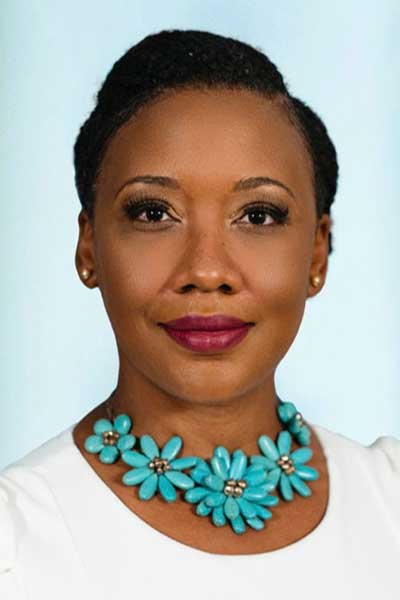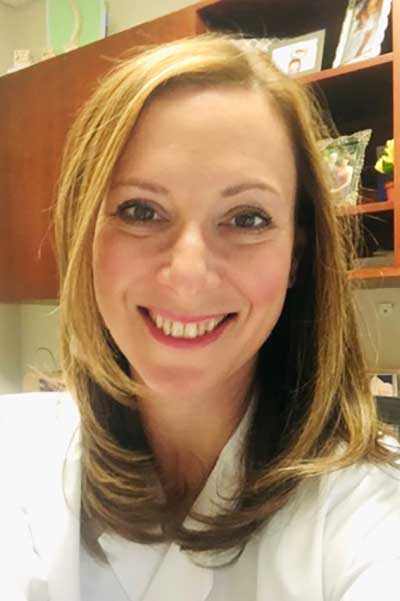ACR Convergence is the world’s premier rheumatology meeting because it provides attendees with an engaging, relevant, and innovative curriculum with lessons that can be immediately integrated into clinical practice.
One of the more popular sessions each year is the Review Course. The seven-hour session consists of eight lectures spanning the scope of rheumatology and is designed to provide a comprehensive update for practitioners. This year’s session will be held on Saturday, Nov. 11, from 7:30 a.m.–2:30 p.m. PT in Exhibit Hall A–B of the San Diego Convention Center. This session will be livestreamed and will be available on demand within 24 hours for registered ACR Convergence 2023 participants.

“The Review Course serves multiple purposes and speaks to a wide audience, which makes planning difficult yet exciting,” said Noelle A. Rolle, MBBS, co-moderator of the course and Assistant Professor of Medicine at Augusta University. “Rheumatology is a relatively young specialty that’s ever-growing and ever-changing. Opportunities like this help us continue to learn, move the specialty forward, and provide optimal care for patients.”
Each year, the planning team for the Review Course identifies a blend of topics that fills gaps in medical education, addresses timely issues, and reexamines best practices in research and clinical care. This year’s presentations will cover an array of topics ranging from everyday clinical concerns, like ankylosing spondylitis and screening for organ involvement in systemic sclerosis, to niche topics, like oft-overlooked considerations for patients with juvenile idiopathic arthritis as they transition from pediatric to adult care. The session will also cover hot topics like reproductive health and the challenges of viral infections and rheumatic diseases.

“Rheumatology is, at times, overwhelming because it examines our most complex diseases that can affect patients in so many different ways,” explained Julie Schwartzman-Morris, MD, MS, co-moderator of the course and Associate Professor of Medicine, Northwell Health, Zucker School of Medicine at Hofstra University. “We hope that the attendees who decide to spend the day with us will leave with a measurable change in how they understand and approach treatment for each of these conditions.”
This year’s course agenda includes:
- “Inflammatory Eye Disease: Diagnosis and Treatment Strategies” by Laura Kopplin, MD, PhD, University of Wisconsin-Madison
- “Transition of Care Concerns in JIA” by Rebecca Sadun, MD, PhD, Duke University
- “Thrombotic Microangiopathy: Challenging Cases and Treatments” by Thomas Ortel, MD, PhD, Duke University
- “An Update on Relapsing Polychondritis” by Marcela Ferrada, MD, National Institutes of Health
- “SpA Update: Radiographic and Non-Radiographic AS” by Alexis Ogdie, MD, University of Pennsylvania
- “Systemic Sclerosis Screening for Organ Involvement” by Francesco Boin, MD, Cedars-Sinai Medical Center
- “Reproductive Counseling” by Megan Clowse, MD, MPH, Duke University
- “Clinical Challenges of Viral Infections and Rheumatic Diseases” by Leonard H. Calabrese, DO, Cleveland Clinic
“One of my favorite aspects of this session is that we get to see world-renowned rheumatologists or specialists speak alongside up-and-comers who are forging their expertise in a particular area,” Dr. Rolle said. “Whether you’re a veteran rheumatologist who has been practicing for decades or a medical student interested in rheumatology, this session can supplement your knowledge on important, specific topics you might not learn about wherever you’re training.”
After each 30-minute presentation, 10 minutes will be allotted to the presenter for a question-and-answer period. A 30-minute break is scheduled at 10:10 a.m., with a one-hour lunch break at 12 p.m.

Registered ACR Convergence 2024 Participants:
Watch the Replay
Select ACR Convergence 2024 scientific sessions are available to registered participants for on-demand viewing through October 10, 2025. Log in to the meeting website to continue your ACR Convergence experience.
